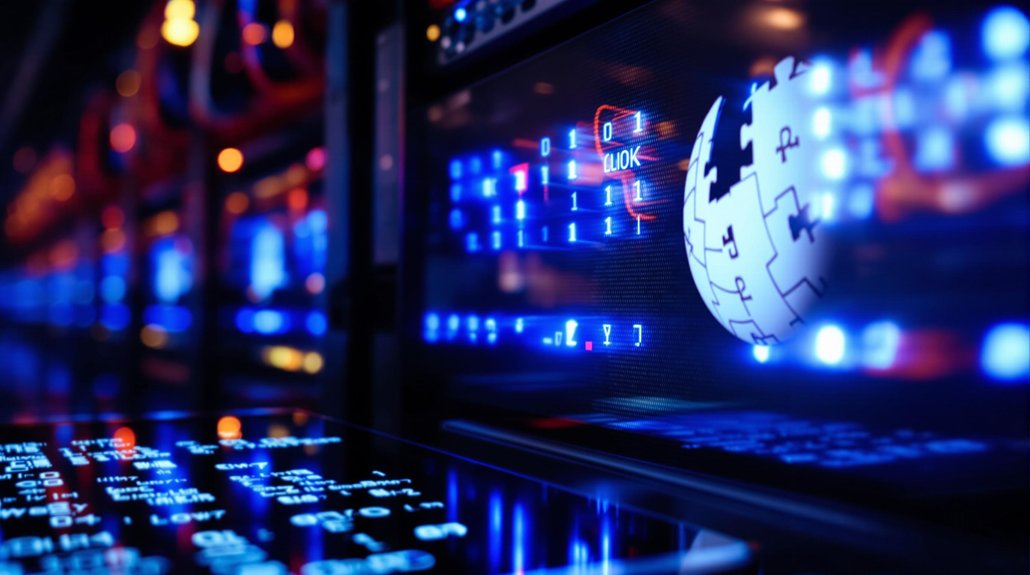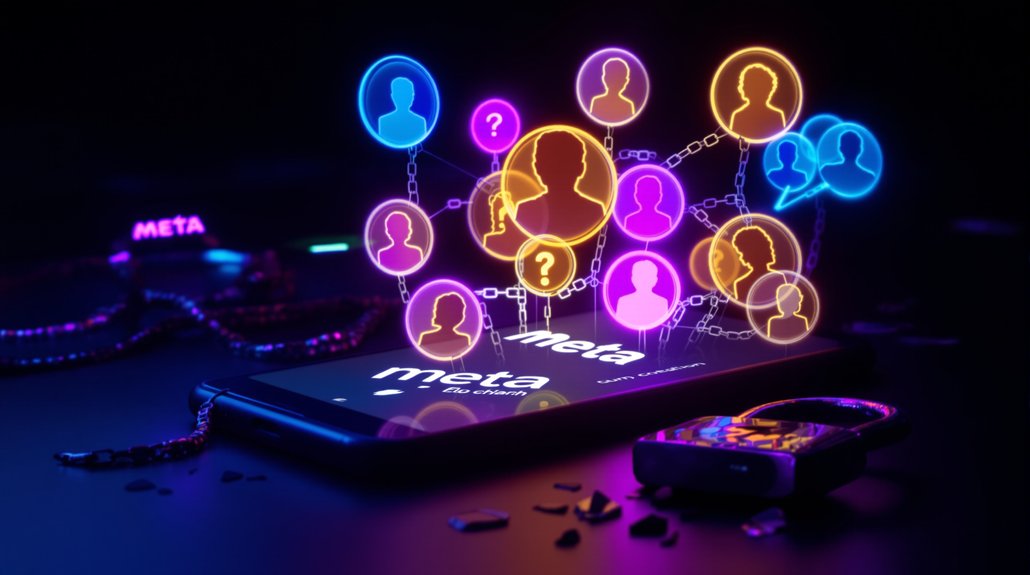While artificial intelligence has transformed how people communicate and connect, new research shows it’s creating unexpected challenges for human relationships. A November 2023 survey found that 52% of Americans feel more concerned than excited about AI in their daily lives, with only 10% reporting more excitement than concern.
AI lacks the emotional intelligence and intuition that humans naturally possess. In healthcare settings, AI struggles with patient communication where empathy and trust matter most. The technology can’t weigh different statistics against each other ethically, which limits its decision-making abilities in human contexts. Forbes surveys show Americans still trust humans over AI by large percentages.
AI struggles with empathy and ethical decision-making, leaving Americans trusting humans over algorithms.
The impact on social relationships has become particularly noticeable among younger generations. Young adults now struggle with basic conversation skills and maintaining eye contact. Technology and AI consumption makes it harder for them to build real interpersonal bonds through conversation. Social isolation has increased, with people lacking regular social contacts and feeling lonely even when they’re around others. Many users develop unhealthy dependencies on digital companions that are designed to be agreeable rather than challenging.
AI does offer some communication benefits. It helps individuals with disabilities by breaking down communication barriers through text-to-speech applications and sign-language translators. Chatbots like Woebot and Replika provide emotional support when human interaction isn’t available. These tools create safe spaces for users to share their concerns and make communication more efficient across various platforms. Virtual assistants and chatbots deliver instant responses to customer queries, improving service availability around the clock.
However, the psychological effects of AI interaction raise concerns. Reliance on AI potentially diminishes interpersonal skills and creates dependency that affects real-world social capabilities. AI interactions may provide a false sense of connection while lacking authentic relationship elements. This dependence on AI can also diminish critical thinking and scrutiny of content, making users more vulnerable to manipulation.
Trust issues persist regarding AI’s role in sensitive communication contexts. People value human judgment in complex emotional scenarios over AI alternatives, and trust varies greatly across different demographic groups.
The findings suggest AI tools should complement rather than replace human interactions. Removing technological distractions from valued social interactions remains important. Human-centered dialogue requires sensitivity that AI currently can’t provide.
As AI continues to evolve, critical evaluation of its relationship impacts becomes essential before widespread implementation in social contexts.
References
- https://eng.vt.edu/magazine/stories/fall-2023/ai.html
- https://cio.economictimes.indiatimes.com/news/artificial-intelligence/the-growing-role-of-ai-in-human-interaction-and-its-limitations/117331610
- https://www.pewresearch.org/short-reads/2023/11/21/what-the-data-says-about-americans-views-of-artificial-intelligence/
- https://www.botkeeper.com/blog/ais-limitations-and-the-need-for-human-protection
- https://blogs.millersville.edu/revisedcommresearchf23/2023/10/18/is-ai-ruining-social-relationships-for-young-adults/









